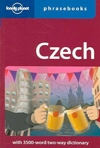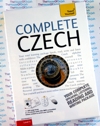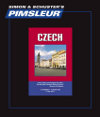Czech

|
Czech is one of the West Slavic languages, along with Slovak, Polish, Pomeranian (Kashubian), and Lusatian Sorbian. It is spoken by most people in the Czech Republic and by Czechs all over the world . Czech is quite close to and mutually intelligible with Slovak and, to a lesser degree, to Polish or to Sorbian in East Germany. As for the relation between Czech and Slovak, speakers of these languages usually understand the other language pretty well both in its written and spoken form and together they constitute kind of language diasystem, though some dialects or heavily accented speech might present difficulties to them (in particular, geographically most distant Eastern Slovak dialects to Czech speakers). .As in most Slavic languages (except common nouns in modern Bulgarian and Macedonian), many words (especially nouns, verbs and adjectives) have many forms (inflections). In this regard, Czech and the Slavic languages are closer to their Indo-European origins than other languages in the same family that have lost much inflection. Moreover, in Czech the rules of morphology are extremely irregular and many forms have official, colloquial and sometimes semi-official variants. The word order serves similar function as emphasis and articles in English. Often all the permutations of words in a clause are possible. While the permutations mostly share the same meaning, it is nevertheless different, because the permutations differ in the topic-focus articulation. Younger generations of Czechs who grew up after the dissolution of Czechoslovakia in 1993 and therefore tend to be less familiar with Slovak might also have some problems with a certain amount of words and expressions which differ considerably in the two languages and with false friends. Nevertheless, these differences don´t impede significantly the mutual intelligibility |

 0 Items (Empty)
0 Items (Empty)


